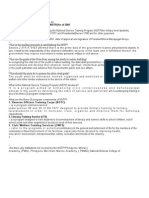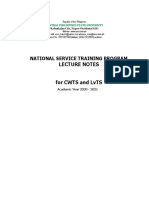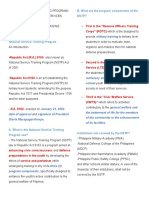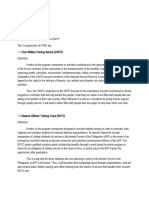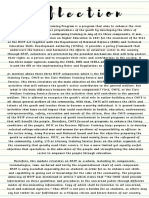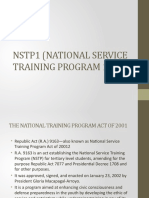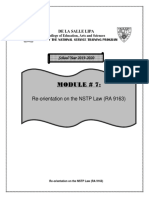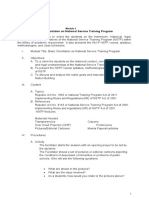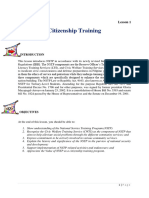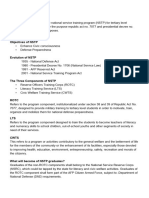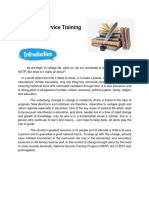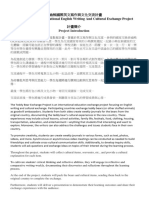0% found this document useful (0 votes)
63 views5 pagesNSTP Assignment2
The document discusses the National Service Training Program (NSTP) in the Philippines. The NSTP aims to develop students' well-being through civic education and defense preparedness. It has three components: Civic Welfare Training Service focuses on community service; Reserve Officers' Training Corps provides military training; and Literacy Training Service teaches literacy skills. The main objective is to promote the role of youth in nation-building and encourage civic and military leadership. The NSTP helps students by training them in principles that develop life and community skills, and prepares them for their professions. Benefits include enhancing leadership, organization, discipline, and environmental awareness.
Uploaded by
Jess RoseteCopyright
© © All Rights Reserved
We take content rights seriously. If you suspect this is your content, claim it here.
Available Formats
Download as DOCX, PDF, TXT or read online on Scribd
0% found this document useful (0 votes)
63 views5 pagesNSTP Assignment2
The document discusses the National Service Training Program (NSTP) in the Philippines. The NSTP aims to develop students' well-being through civic education and defense preparedness. It has three components: Civic Welfare Training Service focuses on community service; Reserve Officers' Training Corps provides military training; and Literacy Training Service teaches literacy skills. The main objective is to promote the role of youth in nation-building and encourage civic and military leadership. The NSTP helps students by training them in principles that develop life and community skills, and prepares them for their professions. Benefits include enhancing leadership, organization, discipline, and environmental awareness.
Uploaded by
Jess RoseteCopyright
© © All Rights Reserved
We take content rights seriously. If you suspect this is your content, claim it here.
Available Formats
Download as DOCX, PDF, TXT or read online on Scribd
/ 5


